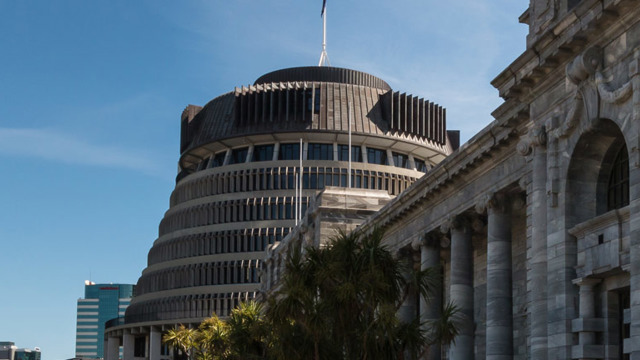Matter of opinion
Intervention in local government – is this a trend?
Another local authority in the news, this time its warring Wellington councillors, currently communicating by way of media statement. In the wake of the Government's replacement of Tauranga City Council with a Commission, there have been immediate calls for the appointment of a Commission for Wellington City Council. The strength of this response prompted Hon Nanaia Mahuta, the Minister of Local Government, to enter the fray saying that she is not "as yet" considering appointing a Commission. This is unlikely to be of much comfort to Wellington councillors.
The Government intervention powers in the Local Government Act (LGA) are there for good reason, providing a level of accountability to central government and enabling a Minister to take action if necessary. But this is in the context of an elected body that has its own democratic legitimacy and unique mandate to prioritise community goals. From a constitutional and democratic perspective, a readiness to see an elected council replaced with Crown appointees is deeply concerning, suggesting the wider implications and available options are not well understood. Time to pause perhaps and be cautious what we wish for.
Appointment of a Commission (a panel of Government appointed commissioners) is one of seven available Government interventions under the LGA and the most extreme. This option upends and undermines local democracy with elected councillors removed and replaced with Ministerial appointees, potentially for significant lengths of time (there is a power to defer a next election).
The LGA says the intervention options do not have to be used in a particular order (from least invasive to most severe). However, because appointment of a Commission is the most invasive option, the LGA requires the Minister to first be satisfied that a lesser intervention would be unlikely to prevent a problem "impairing good local government". This is a high bar. A review of the statutory requirements for other interventions demonstrates "impairing" must mean more than governance dysfunction or a failure to address a problem. The appointment of a Commission is rightly the last resort – none of the other interventions have a lesser intervention test.
The next less invasive intervention is the appointment of a Crown Manager whose powers include the ability to direct councillors on decisions and actions. It is hard to envisage many situations where a Crown manager would be ineffective. Refusal by councillors to comply with a Crown Manager provides an immediate ground for the appointment of a Commission further indicating that moving from a Crown manager to Commission is the right order - not the other way around. Other lesser interventions include the appointment of a Crown Review Team or a Crown Observer.
Appointment of a Commission not only moves power away from communities but can have a broader negative impact on local government democracy (voter turnout in particular) by making it appear to be merely a central government agent. Further, it is not the best option for getting governance back on track. Without councillors in place, it is difficult in practice to develop improved processes that could then carry over to newly elected councillors – a Crown Observer or Manager are arguably more effective in ensuring longer lasting improvements. Nor will a Commission necessarily lead to rate reductions (which is often a key concern for constituents). To the contrary, in Tauranga, the officials' papers suggest a Government preference for investment options that would result in the highest rate increases. Local ratepayers might yet regret the absence of a locally elected voice.
Of concern, available officials' papers relating to the Minister's decision to appoint a Commission for Tauranga City Council do not appear in include a rigorous assessment of lesser options. Nor does the information in these papers clearly demonstrate that the appointment of a Crown Manager would be insufficient – to the contrary a Crown Manager intervention was put forward as a viable option.
It is in the nature of local government that councillors will squabble or conduct themselves from time to time in ways that are deeply frustrating for their community. There are also deeper problems with New Zealand's local government model (which is a separate subject in itself). It is understandable that, at times, any fix might look appealing. However, it is important to hold not only local government to account but central government too. The Minister's decision for Tauranga was a popular one, positively reported by the press and with few questions asked. This in itself is a concerning precedent. As Andy Foster, Mayor of Wellington, calls for an independent review (a similar first step was taken by Tauranga City Council), remember there are many levels of support available that do not involve the loss of the elected community voice.



